Ozempic
Contact
Semaglutide
Active Ingredient: Semaglutide
Pharmacological Group: Type 2 diabetes treatment (Incretin mimetic – Glucagon-Like Peptide-1 (GLP-1) Receptor Agonist)
Formulation and Dosage:
Semaglutide is provided in a prefilled injection pen containing solutions with the following concentrations:
- 0.25 mg
- 0.5 mg
- 1 mg
- 2 mg
Excipients:
- Disodium phosphate dihydrate
- Propylene glycol
- Phenol
- Sterile water for injection
Manufacturer:
Novo Nordisk (Denmark)
Ozempic (Semaglutide)
What is Ozempic?
Ozempic is a prescription medication used in combination with diet and exercise to treat adults with type 2 diabetes who are not adequately controlling their blood sugar levels (glucose). It is a GLP-1 receptor agonist that mimics a hormone produced in the intestines to help regulate blood sugar levels.
In addition to its blood sugar-lowering effects, Ozempic has been found to assist with weight loss, making it a popular choice. However, it should only be used under the guidance of a doctor to ensure safety and effectiveness, as unsupervised use can have risks.
How Ozempic Works
The active ingredient in Ozempic is semaglutide, which is structurally similar to GLP-1 (a hormone produced in the gut). It works by:
- Increasing Incretin Hormones: Semaglutide boosts incretin hormones that help the body produce more insulin in response to food. This means insulin is released primarily after meals, helping avoid low blood sugar (hypoglycemia) that can occur with some other diabetes treatments.
- Inhibiting Glucose Production in the Liver: This helps lower blood sugar by reducing glucose production in the liver.
- Weight Loss Effects: Ozempic also aids in weight loss by:
- Reducing appetite, helping you eat less.
- Slowing down digestion in the stomach, which makes you feel full longer.
Indications
Ozempic is prescribed for:
- Type 2 Diabetes Management: As part of a diet and exercise plan to improve blood sugar control in adults with type 2 diabetes.
- Cardiovascular Risk Reduction: It helps reduce the risk of serious cardiovascular events such as heart attack, stroke, and cardiovascular death in adults with type 2 diabetes who also have heart disease.
Limitations
- Not for Initial Treatment: Ozempic is not recommended as a first-line treatment for patients who cannot control blood sugar with diet and exercise alone due to concerns over thyroid tumor development in animal studies.
- Not for Pancreatitis Patients: Ozempic has not been studied in patients with a history of pancreatitis and should not be used in these cases.
- Not a Substitute for Insulin: Ozempic is not suitable for type 1 diabetes or diabetic ketoacidosis.
Contraindications
Ozempic should not be used in patients with:
- A personal or family history of medullary thyroid carcinoma (a type of thyroid cancer) or multiple endocrine neoplasia type 2 (MEN2).
- Severe allergic reactions (e.g., anaphylaxis or angioedema) to semaglutide or any other ingredients in the medication.
Dosage and Administration
- Starting Dose: Begin with 0.25 mg once a week for 4 weeks. This dose is for initiating treatment and does not control blood sugar effectively.
- After 4 Weeks: Increase to 0.5 mg once a week.
- If further blood sugar control is needed, increase the dose to 1 mg after at least 4 weeks.
- If still necessary, increase the dose to 2 mg once a week (the maximum dose).
- Ozempic should be administered once a week, at the same time each week. You can take it at any time of day, with or without food.
How to Use Ozempic
Ozempic is injected subcutaneously (under the skin) in areas like the abdomen, thigh, or upper arm. Rotate injection sites weekly to avoid using the same spot.
- Do Not Inject Into Muscle or Vein.
- Check the Solution: Ensure the solution is clear and colorless before use. Do not use it if it appears cloudy or contains particles.
- Combination with Insulin: If you use both Ozempic and insulin, inject them separately, ensuring there is no mixing of the two medications.
Storage Instructions
- Unopened Pens: Store in the refrigerator (2°C to 8°C). Do not freeze.
- After First Use: You may store the pen at room temperature (15°C to 30°C) or keep it in the refrigerator, but discard it after 56 days, even if some solution remains.
- Traveling: You can store your current pen at room temperature while traveling but avoid exposing it to extreme heat or sunlight.
Safety Tips
- Always use a new needle for each injection.
- Dispose of used needles properly in a sharp container.
- Follow all instructions given by your healthcare provider.
Important Notes
- Regularly monitor blood sugar levels while using Ozempic.
- Inform your doctor about any history of thyroid or pancreatic issues before using Ozempic.

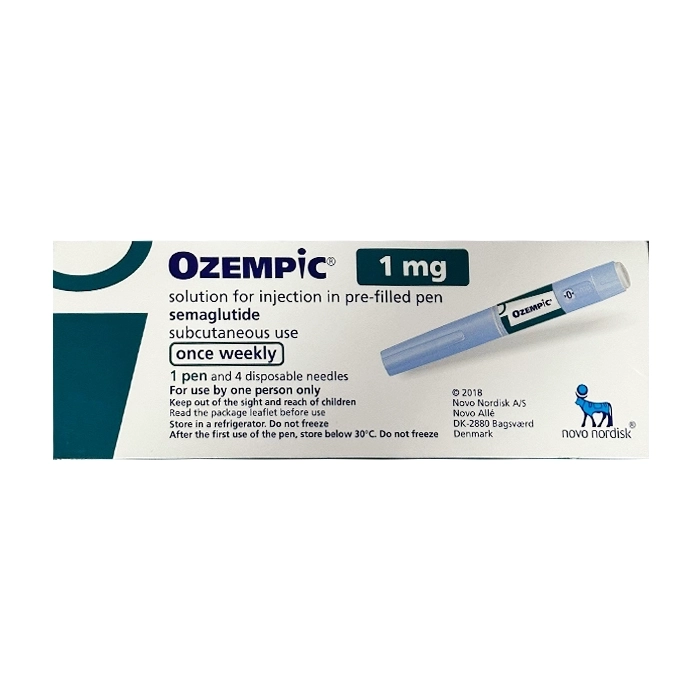

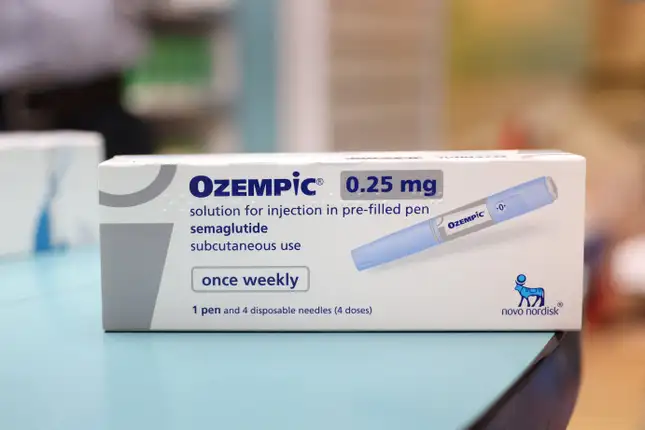
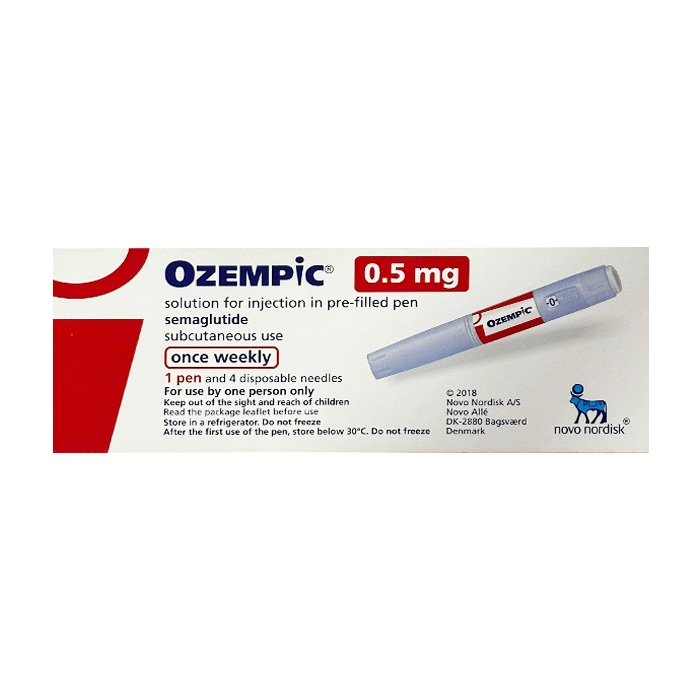

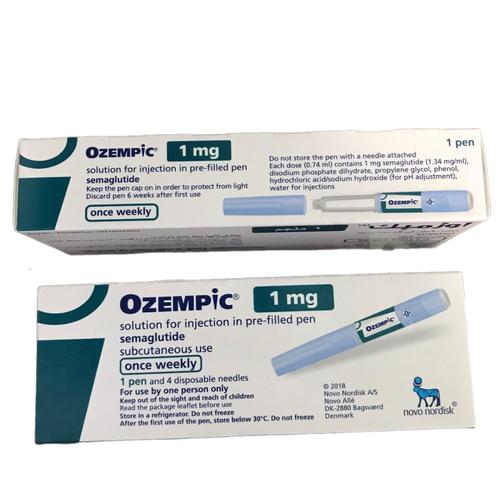
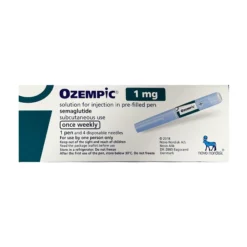


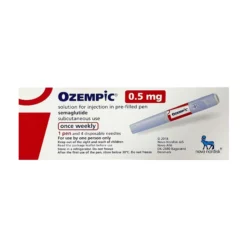




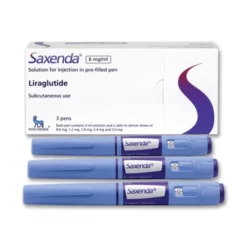
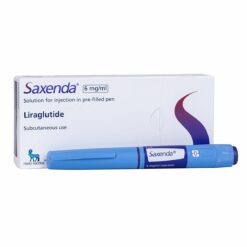




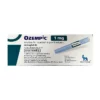
Reviews
There are no reviews yet.